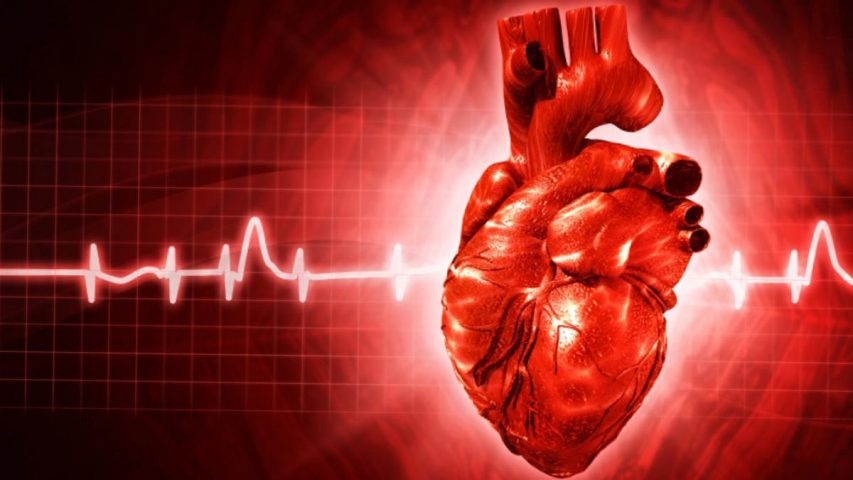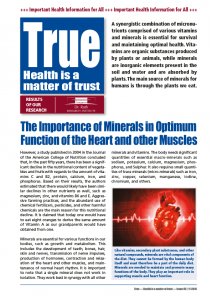- Have any questions? Contact us!
- info@dr-rath-foundation.org

Micronutrients Support the Function of Heart Muscle
October 4, 2017
Are The Nutritional Supplements You Take Effective?
October 4, 2017The Importance of Minerals in Optimum Function of the Heart and other Muscles

 A synergistic combination of micronutrients comprised of various vitamins and minerals is essential for survival and maintaining optimal health. Vitamins are organic substances produced by plants or animals, while minerals are inorganic elements present in the soil and water and are absorbed by plants. The main source of minerals for humans is through the plants we eat.
A synergistic combination of micronutrients comprised of various vitamins and minerals is essential for survival and maintaining optimal health. Vitamins are organic substances produced by plants or animals, while minerals are inorganic elements present in the soil and water and are absorbed by plants. The main source of minerals for humans is through the plants we eat.
However, a study published in 2004 in the Journal of the American College of Nutrition concluded that, in the past fifty years, there has been a significant decline in the nutritional content of vegetables and fruits with regards to the amount of vitamins C and B2, protein, calcium, iron, and phosphorus. Based on their results, the authors estimated that there would likely have been similar declines in other nutrients as well, such as magnesium, zinc, and vitamins B6 and E. Aggressive farming practices, and the abundant use of chemical fertilizers, pesticides, and other harmful chemicals are the main reason for this nutritional decline. It is claimed that today one would have to eat eight oranges to derive the same amount of Vitamin A as our grandparents would have obtained from one.
Minerals are essential for various functions in our bodies, such as growth and metabolism. This includes the development of teeth, bones, hair, skin and nerves, transmission of nerve impulses, production of hormones, contraction and relaxation of the heart and other muscles, and maintenance of normal heart rhythm. It is important to note that a single mineral does not work in isolation. They work best in synergy with all other minerals and vitamins. The body needs significant quantities of essential macro-minerals such as sodium, potassium, calcium, magnesium, phosphorus, and Sulphur. It also requires small quantities of trace minerals (micro-minerals) such as iron, zinc, copper, selenium, manganese, iodine, chromium, and others.
Minerals are heavily involved in proper muscle function. The skeletal muscles of the limbs, the smooth muscles of the blood vessels and internal organs, and the cardiac muscle fibers of the heart depend on a continuous and optimum supply of minerals. Short-term mineral deficiency can manifest as simple muscle cramps; however, chronic mineral deficiency may lead to debilitating muscular dystrophies and even fatal heart attacks. Most of the time, with judicious supplementation, these are preventable ailments.
Sodium and potassium are associated with muscular functions. These minerals, also known as body electrolytes, control muscle contraction because of their role in nerve function and the conduction of nerve impulse and electrical signals. However, calcium and magnesium are lesser-known yet essential minerals for a healthy heart and muscles. Calcium and magnesium work together to control muscle contraction. Muscle proteins require calcium to initiate contraction, and magnesium to initiate relaxation of muscle fibers. Magnesium also increases the absorption of calcium from blood, and it is required for protein synthesis and energy production. Similarly, iron and vitamin B6 help the muscles by providing oxygen and bioenergy required for contraction and relaxation.
However, the two most abundant minerals in the body, potassium and magnesium, also have the highest deficiency rates in Americans. Magnesium deficiency is associated with cognitive decline, autism, depression, and other psychiatric disorders. Using a combination of these minerals synergistically supported by other micronutrients will promote normal muscle function and help maintain a healthy heart and other organs.



